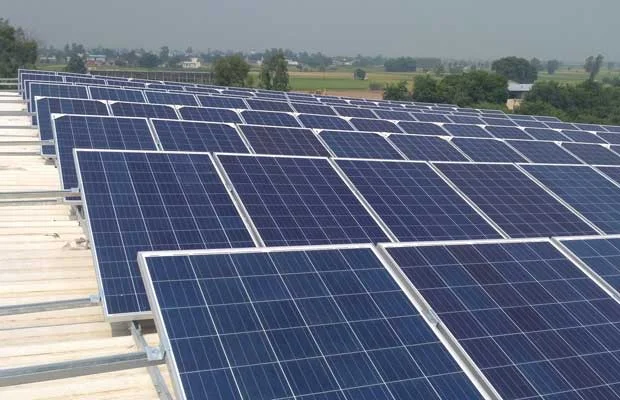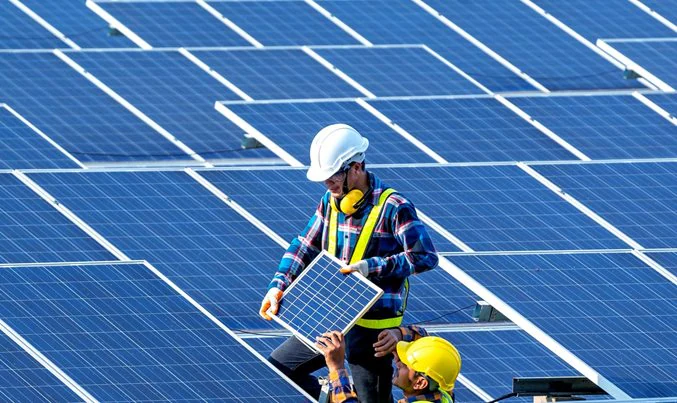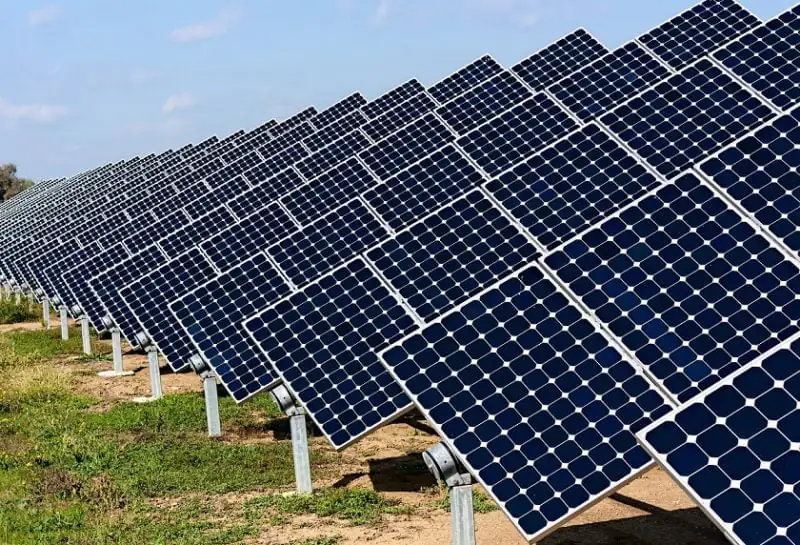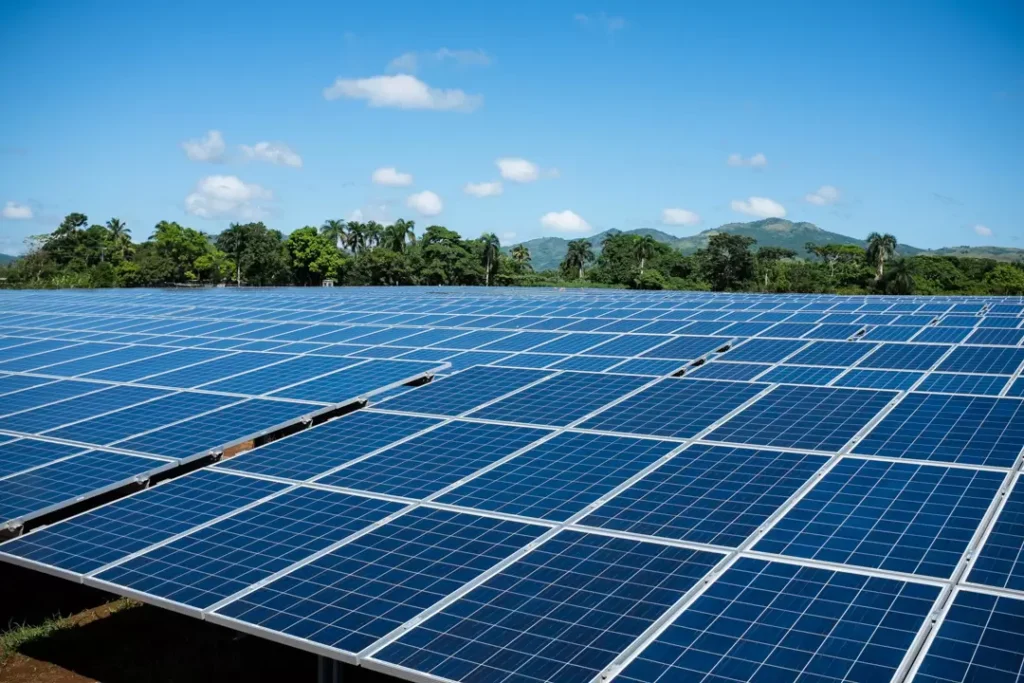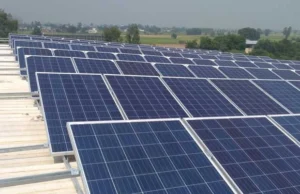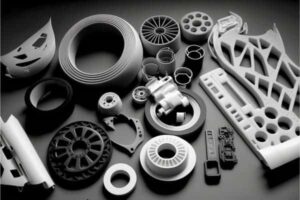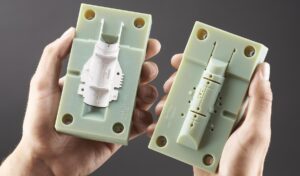India’s renewable energy landscape is evolving rapidly, and Utility Solar EPC in India has become a critical component in driving this growth. As the country aims to achieve ambitious solar capacity targets, large-scale EPC (Engineering, Procurement, and Construction) companies are playing a pivotal role in bringing megawatt-level solar farms to life.
Utility solar EPC involves the complete design, engineering, procurement, and construction of solar power plants capable of feeding electricity directly into the grid. These projects are not limited to small-scale installations but cover vast tracts of land, often generating power in hundreds of megawatts. With India’s growing focus on sustainable energy infrastructure, developers increasingly rely on expert EPC partners to ensure timely delivery, quality control, and long-term performance.
The demand for skilled EPC contractors is expected to keep rising as the nation continues to invest in renewable capacity. From feasibility analysis to commissioning, a robust EPC framework ensures that solar projects operate efficiently and remain cost-effective over decades of operation.
Understanding Utility Solar EPC and Its Role in Project Development
A Utility Solar EPC provider manages every stage of a solar power plant’s lifecycle — from concept and design to construction and handover. This turnkey model ensures that all aspects of the project are handled by a single, technically proficient entity, reducing coordination challenges and ensuring efficiency across all phases.
- Engineering:
This stage involves detailed system design and layout, electrical schematics, energy yield simulations, and structural planning. The goal is to maximize generation efficiency while maintaining cost-effectiveness and compliance with local grid regulations. - Procurement:
EPC companies source critical components such as solar modules, inverters, transformers, mounting structures, and electrical balance-of-system materials. An optimized procurement strategy not only ensures timely availability but also keeps project costs under control. - Construction:
The construction phase covers civil work, mechanical assembly, and electrical installation. Ground-mounted solar farms require precision in racking alignment, cabling, and safety procedures to ensure durability and performance. - Commissioning and Testing:
Before handing over the project to the developer, EPC contractors conduct extensive system testing and performance verification to ensure grid synchronization, operational safety, and long-term reliability.
By taking responsibility for these phases, Utility Solar EPC companies help developers eliminate risks associated with multiple contractors and vendors. This integrated approach ensures consistency, reduces project delays, and maintains a single point of accountability — an essential factor in large-scale solar deployment.
Growth of Large-Scale Solar EPC Projects in India
The demand for large-scale solar EPC projects in India has grown exponentially over the last decade, driven by the government’s ambitious renewable energy targets and the increasing competitiveness of solar power. India has committed to achieving over 500 GW of renewable energy capacity by 2030, with a significant share expected to come from utility-scale solar farms.
This growth has positioned EPC contractors at the center of India’s solar mission. Large-scale solar EPC projects typically range from 10 MW to several hundred megawatts and require sophisticated engineering, supply chain coordination, and on-site project management. Developers, investors, and government agencies increasingly rely on EPC specialists who can deliver projects on schedule, maintain quality standards, and optimize generation efficiency.
Several policy-driven initiatives—such as viability gap funding, accelerated depreciation, and green energy corridors—have further boosted the viability of large-scale solar installations. Additionally, the adoption of advanced technologies like single-axis trackers, bifacial modules, and smart monitoring systems has made utility-scale projects more efficient and financially attractive.
As India continues to expand its solar capacity, the role of reliable EPC partners will remain critical. Their ability to manage land development, resource planning, and grid connectivity directly impacts both project performance and investor confidence.
MW Solar EPC Projects – Process and Key Components
MW Solar EPC projects form the backbone of India’s utility-scale solar industry, representing installations that range from 1 MW to over 500 MW in capacity. Executing projects of this scale demands meticulous planning, engineering precision, and strong on-ground coordination.
The typical process for an MW-scale EPC project includes:
- Feasibility and Site Assessment:
Comprehensive evaluation of land, irradiation levels, topography, and grid proximity to determine site suitability and generation potential. - Engineering and Design:
Preparation of detailed electrical, civil, and structural layouts. This stage defines array configurations, mounting structures, and system losses to ensure optimal energy yield. - Procurement:
Sourcing high-quality modules, inverters, cables, transformers, and mounting systems through approved vendors. Strong supplier networks are key to timely delivery and cost control. - Construction and Installation:
Ground preparation, mounting structure erection, panel installation, cabling, and grid connectivity form the execution phase. Maintaining safety protocols and project timelines is crucial for large sites spread across several acres. - Testing and Commissioning:
Performance ratio testing, inverter synchronization, and grid integration ensure the plant operates at designed efficiency before handover. - Operations and Maintenance (O&M):
Though often managed post-EPC, O&M planning begins during the design phase to ensure long-term system performance and minimal downtime.
In MW-scale solar EPC projects, each step directly affects project economics. Small errors in design or material handling can lead to major losses in generation efficiency. Therefore, developers prefer EPC contractors with proven technical expertise, robust supply chains, and a clear understanding of regulatory compliance.
Ground-Mounted EPC Contractors – Scope and Execution
Ground-mounted EPC contractors play a vital role in implementing large-scale solar power projects that require high stability, scalability, and long-term performance. Unlike rooftop or distributed systems, ground-mounted projects involve vast land areas and demand advanced civil and structural engineering to ensure system integrity under varying environmental conditions.
The scope of ground-mounted EPC execution includes site preparation, structural installation, module mounting, and electrical interconnection. Each of these processes must comply with stringent technical and safety standards. Soil testing, land leveling, and geotechnical assessments are completed before installation to ensure a stable foundation.
Ground-mounted systems commonly use either fixed-tilt or single-axis tracking structures. Fixed-tilt systems offer simplicity and cost efficiency, while tracker systems increase energy yield by following the sun’s path throughout the day. The choice depends on site conditions, project size, and budget considerations.
For reliable performance, EPC contractors must also manage aspects such as earthing, cable routing, and weatherproofing. Integration with the local grid, along with load flow and protection studies, ensures compliance and stability in power delivery.
Effective ground-mounted EPC execution combines technical precision, resource management, and experience with MW-scale construction. Selecting a contractor with proven capabilities in soil work, structural engineering, and large-scale logistics can make a measurable difference in a project’s long-term returns.
Major Services Covered Under Utility EPC
Comprehensive utility EPC services ensure that solar projects are delivered on time, within budget, and according to technical specifications. A strong EPC partner manages every stage with integrated planning, specialized teams, and continuous quality assurance.
Below are the major services typically included in a full EPC scope:
- Engineering and System Design:
Detailed electrical, civil, and structural designs based on irradiation data, topography, and load analysis. This stage defines the plant’s capacity and long-term efficiency. - Procurement and Vendor Management:
Strategic sourcing of critical components such as solar modules, inverters, mounting structures, and balance-of-system equipment. A well-established supply chain ensures competitive pricing and timely delivery. - Construction and Installation:
Execution of civil foundations, mechanical assembly, module installation, and cabling work. Strict quality checks are implemented to ensure mechanical strength, accurate alignments, and safety compliance. - Electrical Work and Grid Connectivity:
Installation of transformers, switchgear, SCADA systems, and interconnection with the utility grid. Proper synchronization guarantees reliable and safe energy evacuation. - Testing and Commissioning:
Verification of all electrical and structural parameters before plant handover. System performance testing ensures expected generation levels are achieved. - Documentation and Compliance:
Preparation of technical drawings, test certificates, safety reports, and statutory documentation required for regulatory approvals. - Health, Safety, and Environment (HSE) Management:
Adherence to site safety protocols, environmental guidelines, and worker training programs.
Together, these utility EPC services create a structured and transparent approach to solar project delivery, ensuring efficiency from design through commissioning. Partnering with an experienced EPC firm helps minimize risks, control costs, and maintain performance consistency across project phases.
Selecting the Right Partner for Utility EPC Services
Choosing the right company to deliver utility EPC services is one of the most critical decisions in a solar project’s lifecycle. The EPC partner determines not only how efficiently the plant is built but also how well it performs over its operational life. A reliable EPC firm ensures adherence to quality standards, safety regulations, and project timelines — all while maintaining transparency and cost efficiency.
When evaluating potential EPC contractors, developers should assess several key parameters:
- Technical Expertise:
Look for proven experience in handling large-scale and MW-level solar projects. Technical design capabilities, electrical engineering know-how, and familiarity with grid integration are essential. - Track Record and Project Portfolio:
A company’s completed projects reflect its execution ability and industry reputation. Consistent performance in similar terrains and capacities indicates strong field experience. - Financial Stability:
A financially sound EPC partner ensures steady project execution without delays due to liquidity or procurement issues. - Supply Chain Strength:
Well-established vendor networks allow for on-time component delivery and cost-effective sourcing of high-quality materials. - Quality and Safety Management:
Compliance with ISO standards, adherence to HSE protocols, and in-house quality control systems are non-negotiable for MW-scale projects. - Post-Commissioning Support:
Ongoing operations and maintenance (O&M) services enhance long-term asset performance. An EPC firm with dedicated O&M teams can significantly improve uptime and energy yield.
Partnering with an EPC contractor that meets these benchmarks ensures that projects are delivered with precision and sustained operational reliability.
Manufyn’s Expertise in Utility Solar EPC Projects
Manufyn offers comprehensive utility solar EPC solutions tailored to meet the technical, logistical, and performance needs of large-scale solar developers in India. With expertise across engineering, procurement, and construction, Manufyn brings an integrated approach that ensures timely project completion and superior energy output.
The company’s experience in large-scale solar EPC and ground-mounted EPC projects spans across diverse terrains and climatic zones. From detailed engineering design to final commissioning, every stage is executed with precision and adherence to national and international quality standards.
Key strengths of Manufyn’s EPC capabilities include:
- Engineering Excellence: Advanced design and simulation tools for accurate system sizing and layout optimization.
- Robust Procurement Network: Strong relationships with Tier-1 suppliers for modules, inverters, and balance-of-system components.
- On-Ground Execution: Skilled project management teams capable of handling MW-scale site construction and logistics.
- Quality and Compliance: Strict adherence to IEC standards, safety codes, and grid regulations.
- Scalable Solutions: Ability to deliver projects ranging from a few MWs to multi-hundred MW solar farms.
Manufyn’s project management methodology emphasizes transparency, efficiency, and long-term performance. Each project is backed by structured timelines, detailed reporting, and dedicated coordination between engineering and site teams.
By choosing Manufyn for your utility solar EPC requirements, you ensure technical precision, cost optimization, and consistent delivery across every project phase.
FAQs for Utility Solar EPC in India
Utility Solar EPC in India refers to the complete Engineering, Procurement, and Construction process of large-scale solar power plants that feed electricity directly into the national grid. EPC companies handle design, equipment sourcing, installation, and commissioning to ensure the project operates efficiently.
A Utility Solar EPC contractor manages every project stage under one umbrella, ensuring consistent quality, faster completion, and optimized costs. They handle engineering, procurement, and construction — reducing risks and ensuring high energy output for MW solar EPC projects.
Large-scale solar EPC projects in India are utility-connected systems, often spread over hundreds of acres and generating megawatt-level power. They require complex engineering, grid integration, and advanced project management, unlike smaller distributed or rooftop systems.
MW Solar EPC projects include site analysis, system design, procurement of modules and inverters, installation, grid connection, and final commissioning. These projects typically start at 1 MW and scale up to several hundred megawatts for utility-level applications.
Ground-mounted EPC contractors specialize in constructing large solar farms using fixed-tilt or tracking structures. Their work covers civil foundations, mounting installation, electrical wiring, and safety compliance to ensure the stability and efficiency of large-scale solar systems.
Utility EPC services ensure reliability through end-to-end control of design, materials, and construction quality. Standardized engineering, tested components, and strict commissioning protocols guarantee that large solar farms operate efficiently and meet expected generation targets.
When selecting a Utility Solar EPC partner, consider their technical expertise, experience in MW-scale projects, financial stability, safety standards, and proven track record in grid integration. A strong supply chain and quality management system are also crucial.
Manufyn provides end-to-end EPC solutions for utility and MW solar projects, combining precise engineering, reliable procurement, and expert on-site execution. With experience in ground-mounted solar EPC, Manufyn ensures on-time delivery, optimized performance, and long-term reliability.
The future of large-scale solar EPC projects in India is driven by hybrid renewable systems, solar-plus-storage solutions, and digitalized monitoring. With continuous government support and falling costs, the EPC sector is set to lead India’s clean energy transition.
You can partner with Manufyn by reaching out through our website or contacting our solar EPC team directly. We offer tailored EPC solutions for developers, investors, and institutions planning large-scale or MW solar projects across India.
Get Started with Manufyn Today
Ready to bring your ideas to life with DIY plastic injection molding? Explore Manufyn’s DIY plastic injection machines and accessories to create custom parts, prototypes, and creative projects with ease. Start your plastic moulding DIY journey now and turn your concepts into reality!
